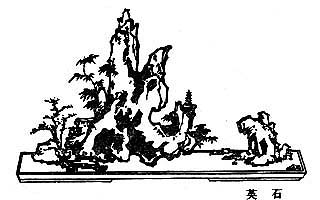Dao De Jing 
 – The Way and Its Power
– The Way and Its Power
The naturalist, individualist and politic doctrine of Lao-tse exhibited in 81 poetic and obscure texts. Tr. Waley (en), Lau (en), Julien (fr) and Wilhelm (de).
| 1 | 2 | 3 | 4 | 5 | 6 | 7 | 8 | 9 | 10 | 11 | 12 | 13 | 14 | 15 | 16 | 17 | 18 | 19 | 20 | 21 | 22 | 23 | 24 | 25 | 26 | 27 | ||
| 28 | 29 | 30 | 31 | 32 | 33 | 34 | 35 | 36 | 37 | 38 | 39 | 40 | 41 | 42 | 43 | 44 | 45 | 46 | 47 | 48 | 49 | 50 | 51 | 52 | 53 | 54 | ||
| 55 | 56 | 57 | 58 | 59 | 60 | 61 | 62 | 63 | 64 | 65 | 66 | 67 | 68 | 69 | 70 | 71 | 72 | 73 | 74 | 75 | 76 | 77 | 78 | 79 | 80 | 81 |
Daodejing II. 66.
Section De – Chapter LXVI
How did the great rivers and seas get their kingship over the hundred lesser streams?
Through the merit of being lower than they; that was how they got their kingship.
Therefore the Sage
In order to be above the people
Must speak as though he were lower than the people.
In order to guide them
He must put himself behind them.
Only thus can the Sage be on top and the people not be crushed by his weight.
Only thus can he guide, and the people not be led into harm
Indeed in this way everything under heaven will into harm be pushed by him and will not find his guidance irk-some. This he does by not striving; and because he does not strive, none can contend with him.
Waley 66
江海所以成能为百谷之王, 是因为它善于居于低下处, 因而能为百谷之王。要想成为人民的领袖, 必须全心为全意人民服务; 要想成为人民的表率, 必须把人民的利益放在第一位。
这样圣人虽居于上而人民不感繁重, 虽处于前而人民不感伤害, 因此乐于推戴他而不厌弃他。因为不与人争, 因此天下都不会跟他争。
白话翻译
The reason why the River and the Sea are able to be king of the hundredvalleys is that they excel in taking the lower position.
Hence they are able to be king of the hundred valleys.
Therefore, desiring to rule over the people,
One must in one's words humble oneself before them;
And, desiring to lead the people,
One must, in one's person, follow behind them.
Therefore the sage takes his place over the people yet is no burden;
takes his place ahead of the people yet causes no obstruction.
That is why the empire supports him joyfully and never tires of doingso.
It is because he does not contend that no one in the empire is in aposition to contend with him.
Lau 66
Pourquoi les fleuves et les mers peuvent-ils être les rois de toutes les eaux ?
Parce qu'il savent se tenir au dessous d'elles.
C'est pour cela qu'ils peuvent être les rois de toutes les eaux.
Aussi lorsque le Saint désire d'être au-dessus du peuple, il faut que, par ses paroles, il se mette au-dessous de lui.
Lorsqu'il désire d'être placé en avant du peuple, il faut que, de sa personne, il se mette après lui.
De là vient que le Saint est placé au-dessus de tous et il n'est point à charge au peuple ; il est placé en avant de tous et le peuple n'en souffre pas.
Aussi tout l'empire aime à le servir et ne s'en lasse point.
Comme il ne dispute pas (le premier rang), il n'y a personne dans l'empire qui puisse le lui disputer.
Julien 66
Daß Ströme und Meere Könige alles Bäche sind,
kommt daher, daß sie sich gut unten halten können.
Darum sind sie die Könige aller Bäche.
Also auch der Berufene:
Wenn er über seinen Leuten stehen will,
so stellt es sich in seinem Reden unter sie.
Wenn er seinen Leuten voran sein will,
so stellt es sich in seiner Person hintan.
Also auch:
Er weilt in der Höhe,
und die Leute werden durch ihn nicht belastet.
Er weilt am ersten Platze,
und die Leute werden von ihm nicht verletzt.
Also auch:
Die ganze Welt ist willig, ihn voranzubringen,
und wird nicht unwillig.
Weil er nicht streitet,
kann niemand auf der Welt mit ihm streiten.
Wilhelm 66

The Way and Its Power – Dao De Jing II. 66. – Chinese off/on – Français/English
Alias Daode Jing, Dao De Jing, Tao Te Ching, Tao Teh Ching, le Tao-tö-king, Lao-Tzu Te-Tao Ching, the Laozi, Lao Zi, the Lao Tze, le Lao-tseu, The Book of the Way and its Virtue, the Way and its Power.
The Book of Odes, The Analects, Great Learning, Doctrine of the Mean, Three-characters book, The Book of Changes, The Way and its Power, 300 Tang Poems, The Art of War, Thirty-Six Strategies
Welcome, help, notes, introduction, table.
Index – Contact – Top
